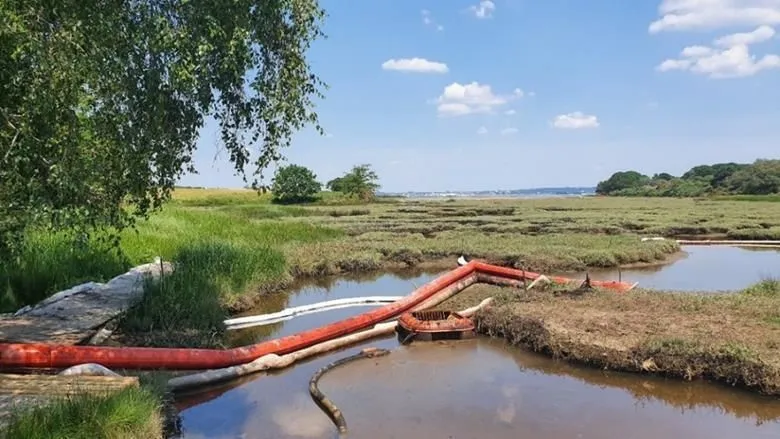In 2023, an oil spill in a marine environment provided a unique opportunity to understand how microscopic life on the seafloor reacts to the presence of hydrocarbons. Far from being an unsolvable catastrophe, the event allowed us to observe how native bacterial communities activate natural bioremediation mechanisms.
Thanks to a collaboration between the University of Essex, Oil Spill Response Ltd (OSRL), the oil company Perenco and the scientific center Cefas, it was possible to study in real time the role of microbes in the degradation of crude oil in the affected sediments.
Thanks to the collaboration between the University of Essex, Oil Spill Response Ltd (OSRL), the oil company Perenco and the scientific center Cefas, it was possible to study in real time the role of microbes in the degradation of crude oil in the affected sediments.
What did the study reveal?
Using metagenomic sequencing, a technique for identifying the DNA of bacteria present in the sediment, the researchers revealed that, after the spill, the microbial communities changed their structure and function to adapt to the new environment. Bacteria that could degrade oil hydrocarbons multiplied, while those that could not, decreased.
This behavior suggests that marine ecosystems have natural resilience mechanisms that allow them to break down oil into less harmful substances. This knowledge is valuable because it will help to understand how bacterial life interacts with the geology and chemistry of the site to restore balance, as well as to determine whether an area will recover on its own or needs help.
A collaboration of great value
The study was led by Jake Smallbone, a PhD researcher at the University of Essex, and relied on the operational expertise of OSRL, who provided the logistics for sampling and their environmental monitoring protocols. This helped the methodology reflect the actual conditions of an emergency operation.
Perenco, involved in the area of the incident, supported the initiative, showing openness to integrate scientific research into its environmental management processes.
Implications for future spill responses
The value of this type of research lies in the integration between science and operational response by providing a replicable model for managing oil spills more effectively and sustainably.
For its part, OSRL has pointed out that this type of collaboration allows it to strengthen environmental preparedness, adjusting its contingency plans based on evidence.
A bridge between laboratories and marine reality
This work demonstrates that solutions to oil spills come not only from machinery and dispersants, but also from natural processes driven by microorganisms. Understanding and leveraging these mechanisms may be one of the keys to faster and more effective ecological recovery.
Source: OSRL via Linkedin

